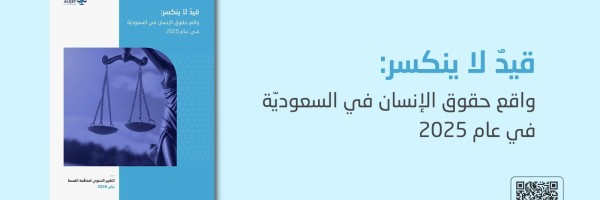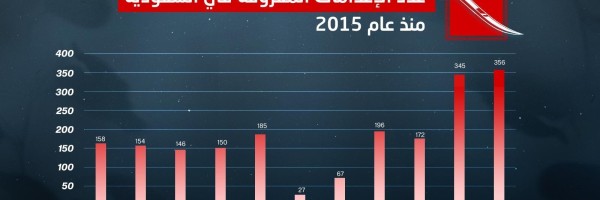On 12 October 2021, the human rights community was shocked to learn of the murder in prison of dissident academic and campaigner for reform Musa al-Qarni.
Witnesses reported that al-Qarni was beaten around the head and face with sharp objects, causing facial injuries and fractures to his skull that led to his death.
We, the undersigned human rights organisations, are calling urgently for an independent international investigation into this crime, both to ensure that those responsible are punished and to protect other prisoners of conscience from any repetition of this tragedy.
Al-Qarni was arrested in February 2007 and eventually sentenced in November 2011 by the Criminal Court to 20 years in prison followed by a travel ban of similar duration.
Al-Qarni was born in 1954 in Saudi Arabia’s Jizan Province. He began his university studies at the College of Sharia in Riyadh and went on to obtain a doctorate in usul al-fiqh (principles of Islamic jurisprudence) from Umm Al-Qura University in Mecca. He taught at several universities, such as the Imam Mohammad Ibn Saud Islamic University in Saudi Arabia and the University of Da‘wa and Jihad in Pakistan.
On 2 February 2007, al-Qarni was arrested among a group of academics and clerics known as “the Jeddah Reformers.” The group’s membership included Sulaiman al-Rashoudi, Saud al-Hashimi, Abdulaziz al-Khereiji, and Essam Basrawi. They were accused of founding a secret organisation with the aim of spreading anarchy and seizing power with foreign help.
In November 2011, the Saudi Criminal Court handed down prison sentences on 16 defendants, among them al-Qarni, totaling 228 years.
Al-Qarni had already been subjected to beatings and torture in prison, and he suffered a stroke in May 2018. The prison administration gave him the wrong medication before transferring him to a psychiatric hospital, with the aim of damaging his intellectual reputation and giving the impression that he was mentally ill.
In Saudi Arabia, prisoners are often isolated in bare cells at temperatures of extreme cold or extreme heat, forced to stand on one leg or on a chair for hours, and deprived of sleep, food, and vital medication. These practices are applied especially to prisoners of conscience, whom the authorities seek to punish further as a form of vengeance.
Al-Qarni’s killing is a stark illustration of the violations suffered by the majority of prisoners of conscience in Saudi jails, including torture, denial of medical treatment, and denial of family contact. His killing also sends a warning to other prisoners of conscience that they are not safe from the brutality of the Saudi authorities, even in prison.
Pioneering human rights activist Abdullah al-Hamid, one of the founding members of the Saudi Civil and Political Rights Association (ACPRA) died in April 2020 at the age of 69 while in detention, after the Saudi authorities repeatedly refused him medical treatment. They also deliberately prevented him from calling his relatives to tell them that he needed emergency surgery, but had been discharged from hospital. He was denied the necessary operation right until his death.
Ahmed al-Amari al-Zahrani died of a brain haemorrhage in January 2019 after being tortured in Dhahban Prison.
Journalist Saleh al-Shehi died on 19 July 2020 just two months after being unexpectedly released from prison. Although the authorities stated that he had died because of the coronavirus, the circumstances of his death, as well as of his release, remain shrouded in mystery.
Prisoner Zaheer Ali Shareeda died in May 2021, again in mysterious circumstances. Before he died, Shareeda and a group of other prisoners, including Mohammed al-Qahtani and Essa al-Nukheifi, had announced their intention to go on indefinite hunger strike. Following this announcement, officials at Al-Ha’ir Prison separated Shareeda from the other prisoners. When they later brought him back he was infected with coronavirus, the prison administration claimed. He died a few days later.
The murder of Musa al-Qarni is yet another of the Saudi authorities’ crimes against human rights and political activists, campaigners for reform, and other prisoners of conscience. We, the undersigned human rights organisations, call for an immediate, independent, international inquiry. The international community should demand Saudi authorities be held to account for al-Qarni’s death and for the protection of all prisoners of conscience in Saudi prisons.
SIGNATORIES:
- ALQST for Human Rights
- Democracy for the Arab World Now (DAWN)
- MENA Rights Group




